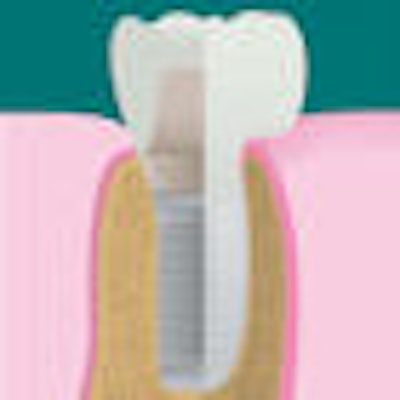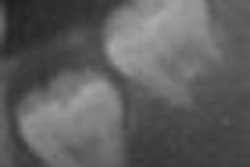
Although implant dentistry has become widely accepted to restore aesthetics and function of teeth, it is not without risks. One serious complication that can occur is alteration of sensation due to nerve injury. Some reports place this occurrence as high as 13%.
For dental practitioners, thorough understanding of anatomy, surgical procedures, and implant systems, along with proper treatment planning, are essential to reduce the occurrence of inferior alveolar nerve (IAN) injuries, according to an article in the October 2010 Journal of Oral Implantology (Vol. 36:5, pp. 401-407).
Injury to the inferior alveolar nerve can cause alteration of sensation in varying degrees, from mild numbness to loss of pain sensation to complete loss of perception of stimulation, researchers from King Abdulaziz University noted in the article. The condition usually improves in a few months, but it can be permanent in some cases.
The authors note that proper localization of the nerve before the procedure is an essential preventive step. Conventional radiography is most commonly used, but tomography and computerized tomography and even surgical exposure are also options.
Additionally, practitioners should perform standard neurosensory examinations, before and after treatment, to determine any degree of change in sensation. Many of these are simple tests, such as the patient determining the location of a light touch to the face or the direction of a brush's movement, or feeling heat and cold.
Severe nerve injuries are often the result of drilling too deep -- past bone into the nerve -- or placing the implant itself upon a nerve. Accurate measurement of the available bone or the use of a drill guard can prevent overpenetration. The authors recommend a type of implant that can be removed or unscrewed a few threads after placement to relieve pressure on the nerve.
When injury does occur, determining the cause also determines the response. A radiograph could confirm if the implant was the problem rather than the drilling. Steroids or other anti-inflammatory drugs should be prescribed to control inflammatory reactions.
Sensation may return slowly, but if improvement is not observed within two months, referral to a microneurosurgeon is necessary, the authors noted. Degeneration of the nerve can take place four to six months after nerve injury, so swift action is essential.
"One of the serious complications of posterior mandibular implant placement is IAN injury," they wrote. "If nerve injury occurs, early and proper management is the key to maximizing the chances of recovery."
Copyright © 2010 DrBicuspid.com



















